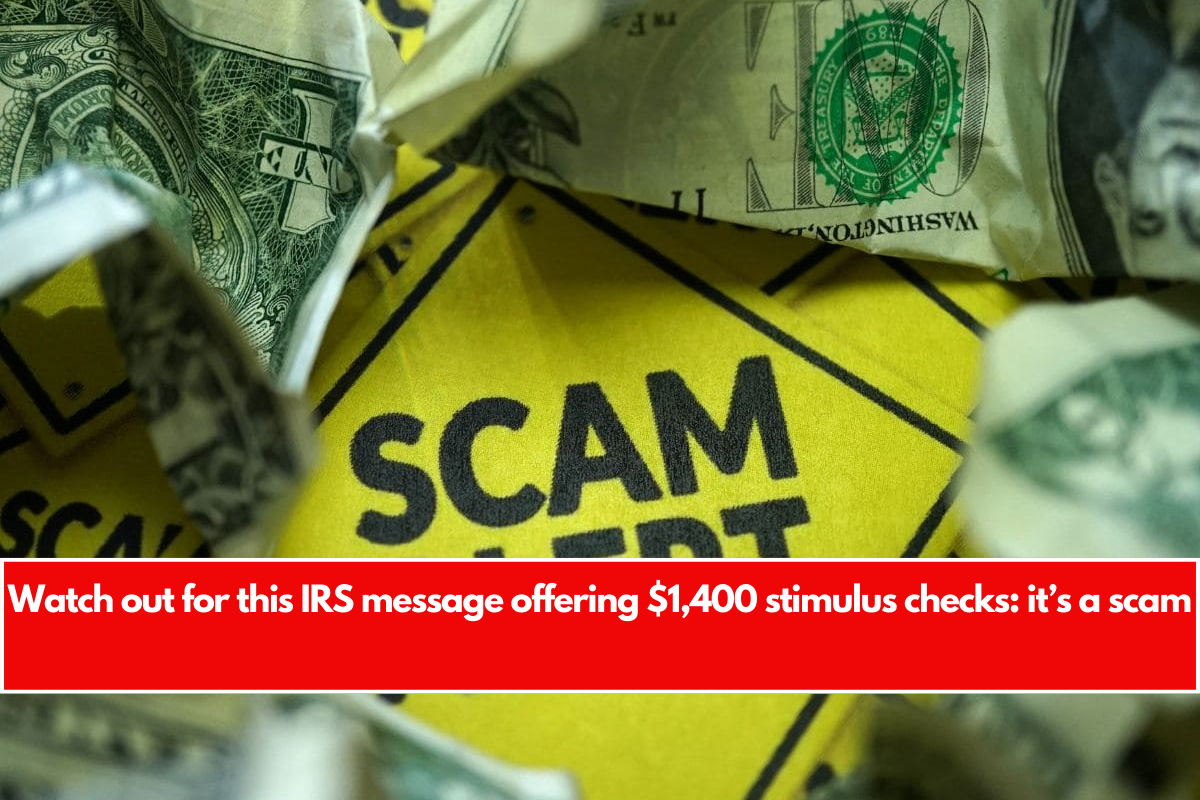Scammers routinely take advantage of tax season in the United States to defraud consumers by making false promises about automatic payments. One of the most recent scams involves text messages pretending to be from the Internal Revenue Service (IRS) alerting customers to a $1,400 check as part of a special return. According to the Better Business Bureau (BBB), these emails are fraudulent efforts to acquire financial and personal information.
The IRS confirmed that SMS texts are not utilized to record refunds or payments. Its primary mode of contact with taxpayers is postal mail. In exceptional cases, calls or messages may be made, but only if the person has already provided their agreement via official procedures.

How the fraud operates
Scammers send communications claiming to be from the Internal Revenue Service, suggesting that the receiver is eligible to receive a $1,400 check as part of an economic impact payment. They include a link in the text that directs viewers to a bogus website that mimics the IRS page. Credit card numbers, bank information, and Social Security numbers are sought for.
It is important to remember that, depending on the information previously supplied to the IRS, the IRS will send the payment by physical check or automatic direct deposit if the applicant qualifies for it. The agency will not solicit personal information by text message, email, or phone contact.
What to do if you get an IRS suspicious message
If you get a text message suggesting you are entitled to a $1,400 check, do not click on any links or open any documents. The best course of action is to either mark the message as “spam” or “phishing,” depending on your phone’s settings, or to delete it immediately.
You may also report the fraud by performing the following.
- For the IRS to look into the suspicious message, forward it to phishing@irs.gov.
- Use the BBB platform to report it at BBB.org/ScamTracker.
Information is the best defense against these scams. Keep an eye out and keep in mind that the IRS will not SMS you to let you know about payments or refunds. If in doubt, confirm the legitimacy of any correspondence by visiting the IRS’s official website.


















Leave a Reply